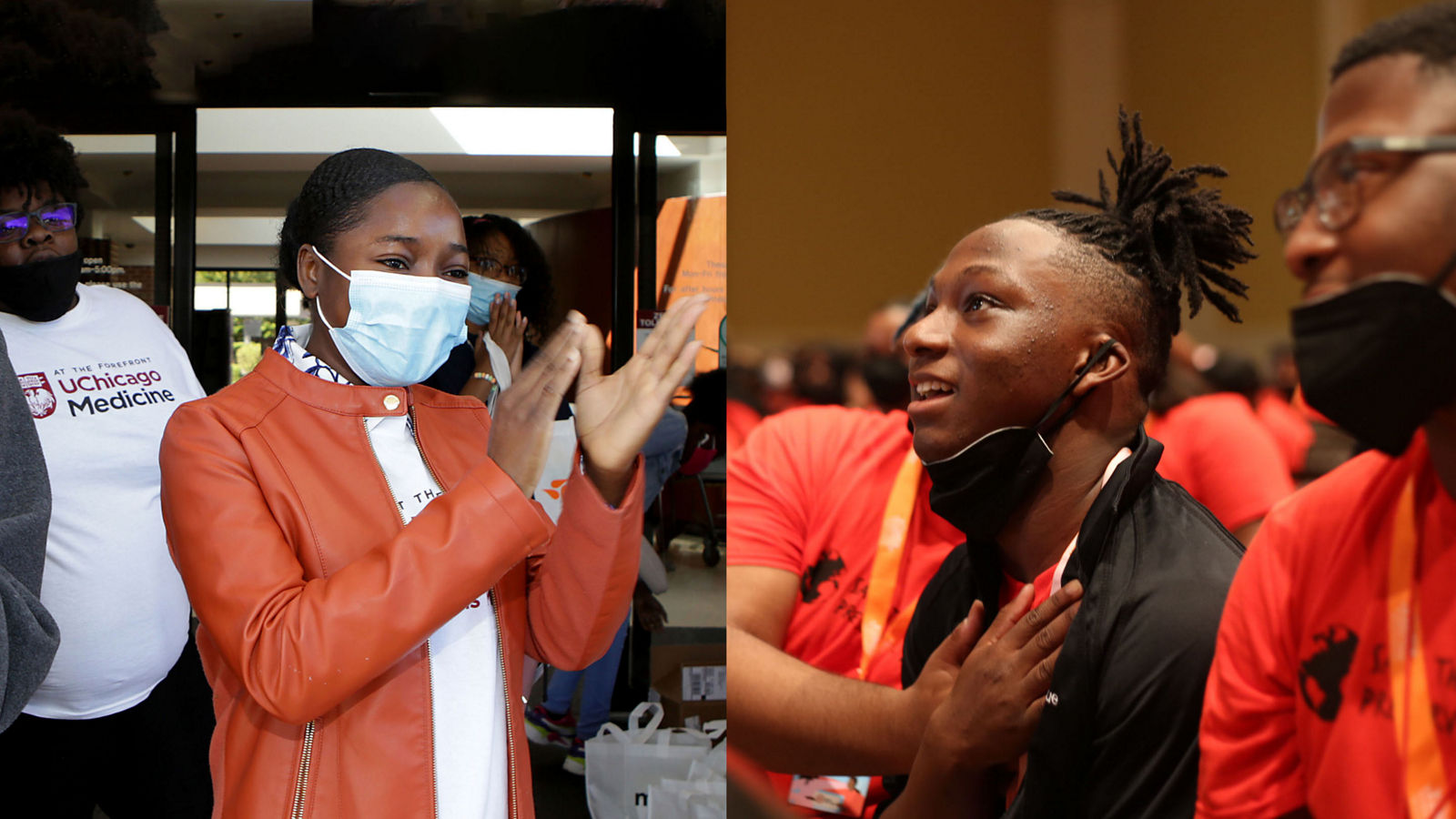Change from within: Kenyan mom groups help families and communities thrive
Through a decade-long partnership, AMPATH and the AbbVie Foundation empower expectant mothers in Kenya through health and microfinancing education
Prioritizing prenatal health
For an expectant mother, pregnancy is often a joyous but busy time as she prepares for the baby’s arrival.
In many parts of the world, an expectant mother would seek prenatal care from her doctor, make plans to deliver in a health care facility and consider breastfeeding as a form of good nutrition for her child.
Support and guidance from other women, including coworkers, family members and friends, is an important way for expectant mothers to gain insights on parenting techniques, healthcare options and financial challenges.
But for many women around the globe, including some parts of Kenya, access to healthcare and clinical support is limited and earning a livable income as a mother is challenging.
A pilot program that turned purpose into impact
Enter “Chamas for Change” or mother-child groups, which started in 2012 as a pilot program by AMPATH, a partnership between Moi University School of Medicine, Moi Teaching and Referral Hospital (both in western Kenya), and a consortium of academic health centers led by Indiana University. (Chamas translates to “groups” in Swahili.)
Leaders at AMPATH, which stands for Academic Model Providing Access to Healthcare, saw an opportunity to launch the Chamas for Change program to give women access to prenatal education.
Designed and launched in partnership with Kenya’s Ministry of Health, the Kenyan Chamas for Change program set in motion a cascade of growth and success: it began with 16 sites and is now active in over 398 communities with over 4,363 members. As the program has grown, it’s expanded to include microfinancing education to empower women economically, alongside health education.
398
communities where Chamas for Change is active
4,363
Mother-child pairs with active membership in Chamas for Change
Support from the AbbVie Foundation
Ongoing support from longtime partner AbbVie Foundation has fueled the growth of the Chamas for Change program, which continues to expand in communities across western Kenya and improve the health of mothers and their babies.
“Our partnership with the AbbVie Foundation started over a decade ago through an initiative to respond to Kenya’s HIV/AIDS crisis. Since then, we’ve adapted to the evolving needs of local communities and launched other successful programs, including Chamas for Change,” says Laura Ruhl, MD, MPH, a co-founder of the Chamas program.
AMPATH, through the AbbVie Foundation’s support, has focused on supporting community-centered programs that can alleviate health inequities among underserved populations in western Kenya.
“We proudly partner with AMPATH because we know that health equity is the cornerstone of a just and thriving society and believe that eliminating health inequities is key to creating a future where the well-being of every individual is supported,” said Claudia Carravetta, vice president, corporate responsibility & global philanthropy, AbbVie, and president, AbbVie Foundation.
How chamas groups work
Chamas have a longstanding presence in East Africa, often as a way for people to pool resources and funds during emergencies like famine, floods or funerals. Through Chamas for Change, the program founders utilized this existing group model to fit the needs of the women during different stages of their lives, with some groups inviting spouses to join, and discuss topics like how to decrease stress within the home and improve their child’s development over time.
The AMPATH Chamas for Change model brings together women during their pregnancies through biweekly meetings. In addition to health conversations, the women also gain financial skills and access to group savings and loans.
Founders of the program had initially envisioned the program as short-term, to see a woman through pregnancy, childbirth and the first year of her infant’s life. But then the women wanted to continue past the first year, Ruhl says. Today, many chamas stay together for up to 3 years, building lasting friendships and continuing the programs on their own. The longevity of the groups has exceeded AMPATH’S expectations, says Ruhl.
The real impact on women & families
With more than 11,723 total participants from 2014-2023, the program has made an incredible impact. The results from an AMPATH study published in 2020 revealed that:
- 84.4% of women in chamas deliver their baby in a health facility, compared to 50.4% in a control group
- 75.8% of women in chamas had a health visit within 48 hours of birth, compared to 38.3% in a control group
- 64% of women in chamas had 4+ prenatal visits, compared to 37.4% in a control group
- 82% of women in chamas breastfed exclusively for six months, compared to 47% in a control group
In addition to growing participation among women, fathers have also expressed interest in taking part. As a result, AMPATH started separate BabaToto groups to empower men with the same health and parenting education.
Seeing the impact firsthand
As the project manager of the Chamas for Change since 2012, Justus E. Ikemeri has seen firsthand the impact on individual mothers and their families. He recalls one group focused on microfinance, in which the members pooled their money and worked together to eventually increase the funds fivefold. Several groups have opened small businesses together, offering an opportunity for both women and their spouses to earn income.
“In the microfinance program, everybody shares – you invest in each other,” Ikemeri said. “My vision is to take the program country-wide and then international.”
Media inquiries:
Email: [email protected]

